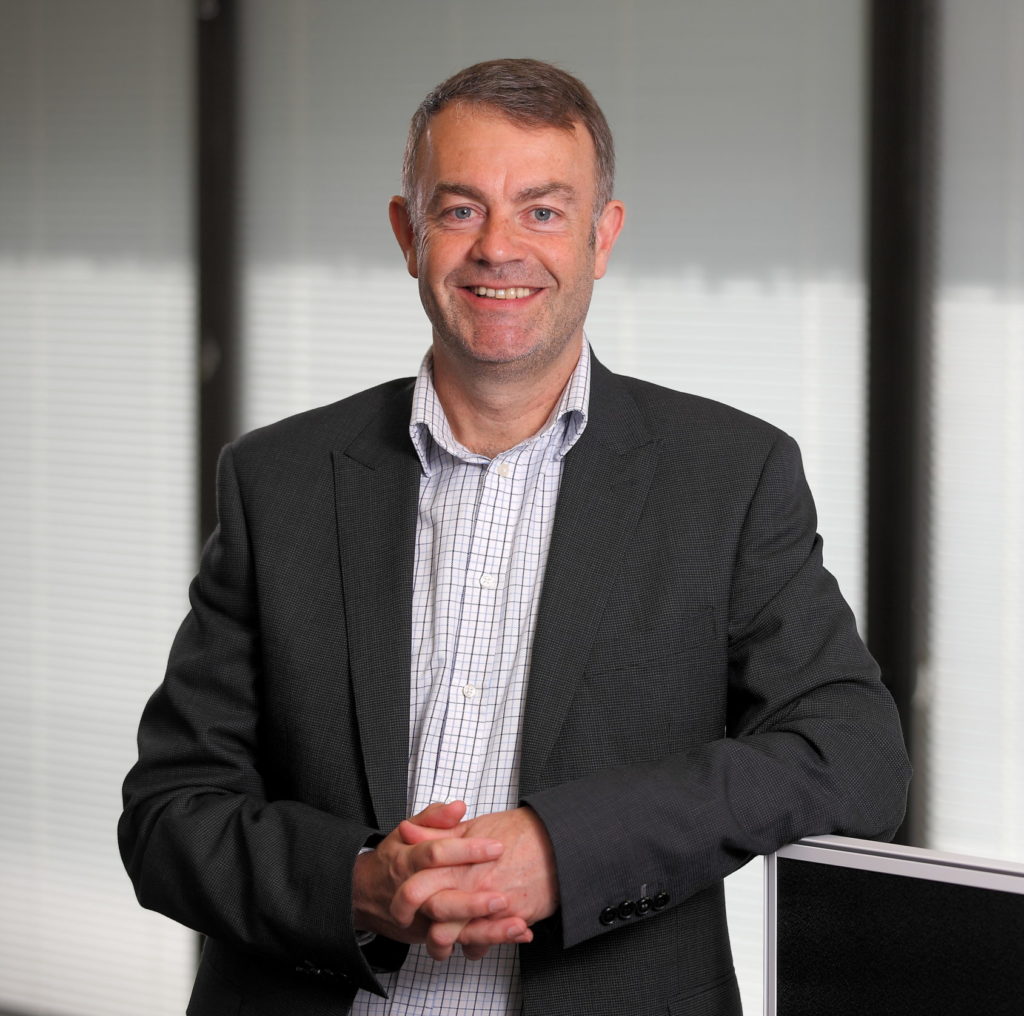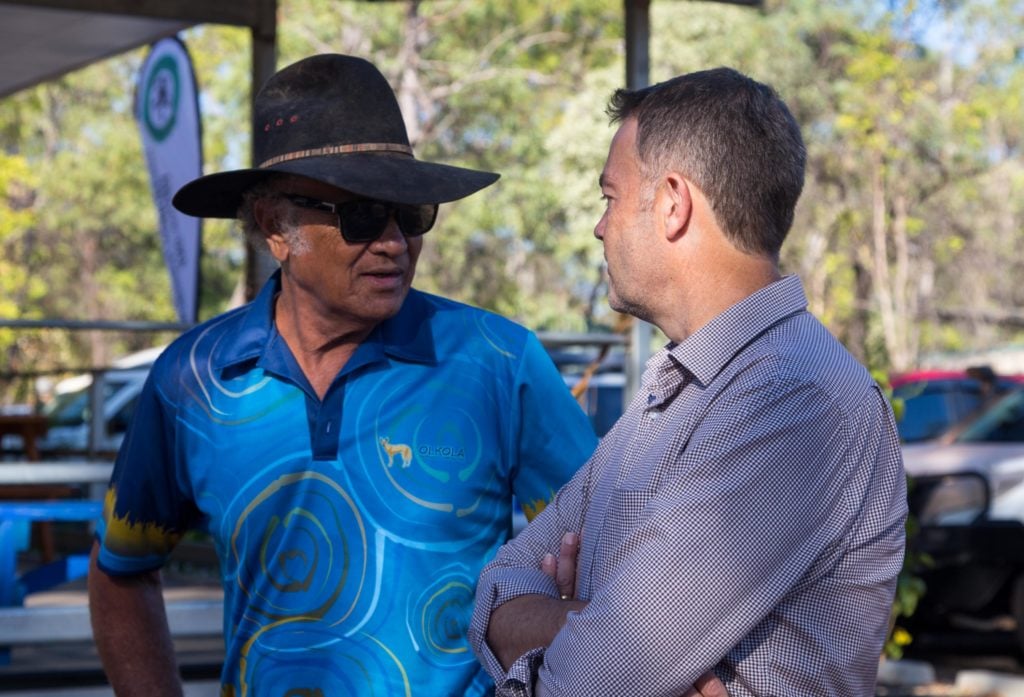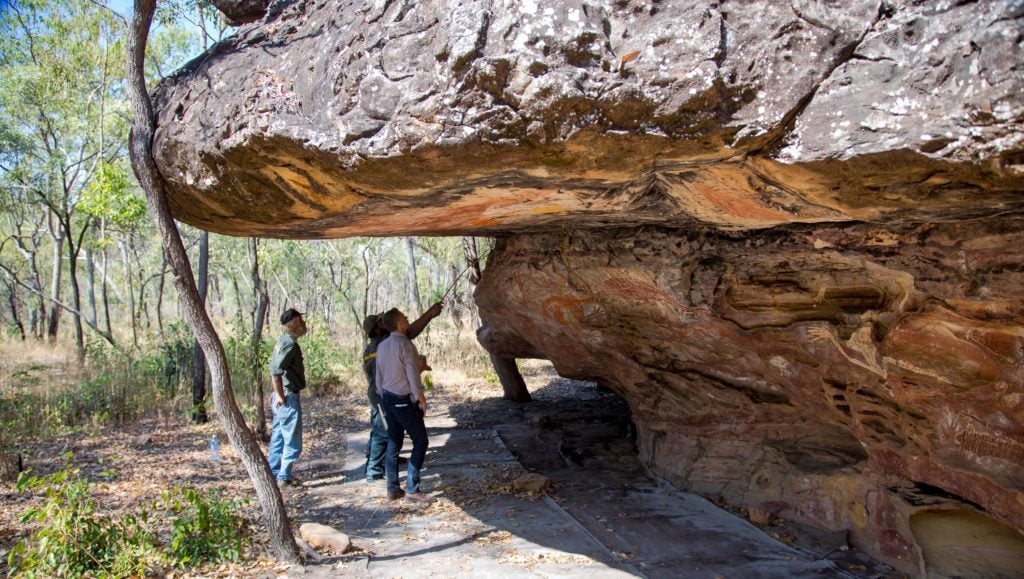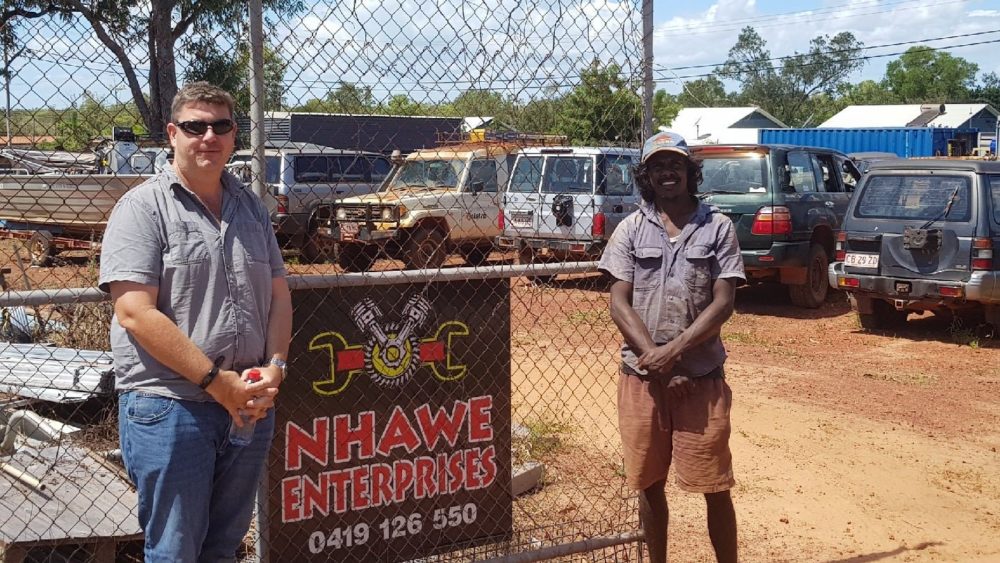The real story about 'jobs and growth' in Australia
Meet the man who traded corporate life to walk alongside those living with disadvantage
John Burn can pinpoint the exact moment he decided to leave his 21-year career as a senior executive in the Commonwealth Bank to, hopefully, make a contribution in the not-for-profit world.
He was on a business trip in Jakarta, Indonesia’s capital city. Sitting in a black Mercedes as the driver edged through crowded streets, Burn looked out the tinted windows to survey the landscape of abject poverty just outside.
“I’m thinking ‘this is just insane. Either I don’t look out the window anymore and I just sort of focus on what I’m doing and just carry on with my life, or I look out the window and let it wash over me and engage.’
“I chose to look out the window. I sat there for two hours with it just pouring over me. Then, six months later, I had finished working at the bank.”
“Australia is a very different place outside of the Eastern seaboard of Brisbane, Sydney and Melbourne.” – John Burn
Burn entered the bank as a university graduate and worked his way up the ladder. He always planned to move out of the commercial sector by 45, to work for not-for-profits in some capacity.
“I didn’t know exactly what that meant … But I had an opportunity for education and I did fall into a career that enabled me to build skills,” he says. “I really felt like I wanted, if it was valuable to people, to be able to share some of those skills while I was still young enough to do that at a management level.”
What happened next for Burn seems like divine planning – as it perfectly married his skills, Christian convictions and experiences of travelling around Australia in stages over a ten-year period with his wife and five children.
Through contacts, Burn was put in touch with a fledgling not-for-profit called Many Rivers. The organisation provides access to micro-loans, pro bono legal advice and other support to Indigenous and other Australians living in disadvantaged contexts. This helps them to establish and develop a small business. Initially basing its micro-credit model upon the one used in developing countries by Opportunity International, Many Rivers is, most likely, the only organisation of its kind in Australia.
“Australia is a very different place outside of the Eastern seaboard of Brisbane, Sydney and Melbourne,” says Burn, who lives on Sydney’s north shore.
“I had seen some of that disadvantage when travelling with my family, and I thought there’s no point in going overseas and doing something there if there’s a need right here.” – John Burn
In addition to the normal challenges of establishing a small business, Burn identified three structural challenges facing many of their clients: “population density in remote Australia impacting local economic momentum, high costs to operate the service and the impact of intergenerational welfare dependency on clients and communities.
“I had seen some of that disadvantage when travelling with my family, and I thought there’s no point in going overseas and doing something there if there’s a need right here. We need to be doing something about that too.”
As resources were slim, Burn began volunteering at Many Rivers in 2009 (when it had only three staff members). The following year, he was made COO, before taking on the role of CEO in 2014.
“The first thing I did was go and buy that map on the wall,” Burn tells Eternity from Many Rivers’ head office in Sydney. “I sat down with the program manager at the time and said, ‘where do we think people who need our support probably are? Let’s start working out how we develop a funding model that would enable us to go in and work there.’
“Wind it forward, and we now have a data model, so we know exactly – down to 2300 statistical areas – the nature and extent of disadvantage happening across our country.
“Essentially, we have people operating across all of these areas, but it’s taken us ten years to do that.”

John Burn, CEO of Many Rivers
Today, Many Rivers has 45 field staff working in 32 locations around the country. To cover the high costs of operating in regional and remote parts of Australia, the organisation is largely funded by philanthropists, corporate partners and government agencies.
This has enabled Many Rivers to help create and expand more than 2000 small businesses in the past decade – from florists and barbers, to artists, web designers, beer brewers and many more.
But, Burn says, it’s not the number of businesses that matters but rather, changing people’s circumstances. “Our purpose is about walking alongside people who are experiencing individual and structural disadvantage.”
“We don’t get out of bed and go, ‘let’s start businesses today!’ It’s all about journeying with people over a long period of time and actually get to know them in a real way …
“Sure we sit down and work through business plans and cash flows, and we help people think of ideas of how to improve their business so they can be sustainable and grow and generate profit for their family and community. But that’s the product; that’s not the purpose.”
Burn traces the organisation’s purpose back to its founding chairman and his wife, Christian philanthropists Peter and Sandra Cadwallader. (Although Many Rivers is not specifically a Christian organisation, it does identify itself as being “inspired by Christian values”.)
“One of the fundamental reasons why Peter and Sandra considered Many Rivers in the first place was the very high rates of youth suicide in remote Australia.
“As people, when we don’t have a purpose, we lose hope. And when we lose hope, then we lose a reason for life. That’s a really fundamental part of our work with our clients and communities.”
“What we’re really doing is helping people rebuild themselves through the self-esteem that comes through work and making a contribution.” – John Burn
According to Burn, work is fundamental to life purpose.
“A lot of the people that we work with haven’t had examples in their family or communities where people have worked before. And, while it’s wonderful our welfare system is available for people, if people become dependent on welfare, then it actually really attacks their self-worth and self-esteem.”
“God designed us to work, and when we don’t work, we feel bad. So at one level, even though Many Rivers is supporting this idea of economic participation through enterprise, what we’re really doing is helping people rebuild themselves through the self-esteem that comes through work and making a contribution.”
As Burn has discovered, this transformation takes time. “We work with clients over many years. So we’re not interested in just working with somebody to help them get a business started. We want to see that business continue to grow and thrive.
“You build a relationship with the client that you’re working with, so as a person goes through the ups and downs of life and the ups and downs of a business, you’re doing that journey with them. Often it’s not so much that the business is problematic, although that’s challenging enough, but it’s actually what’s going on in their context.
“We often say we are part-time business bankers, part-time social workers. You become the most trusted relationship that a client has outside of their core context.”

John Burn (right) chats with Michael Ross, Olkola elder, traditional owner and board chairperson of the Olkola Aboriginal Corporation, based in Cairns, Queensland. Many Rivers
In addition to individual business support, for the past four years, Many Rivers has been running a whole community economic development program solely with Aboriginal and Torres Strait Islander communities.
“We realised that as you got into more remote communities, particularly working with Aboriginal and Torres Strait Islander communities, that we needed to do things at a leadership level with the corporations that manage the business of the community.”
Many Rivers works with leaders in 17 Aboriginal and Torres Strait Islander communities that want to establish or grow economic activity on their land, and another 130 communities have approached Many Rivers asking for support.
“One of our rules is that we only go where we are invited,” Burn explains, adding that they agree to work with each community for at least five years.
“The goal is to help people understand and learn, and then be able to make decisions for themselves. I talk about bringing knowledge, traditional lore and corporations law together.
“I can bring the corporations law, financial training, governance training and economic planning, and the leaders of the community bring what’s important to the community – what it is they actually want to execute. Not the other way around.
“We need to start with what does the community want to do and what’s important to them, and how then do the economic opportunities support that.”
The community program has had great success in Laura in northern Queensland – where it was first trialled – with Many Rivers working with the local Ang-Gnarra Aboriginal Corporation to initially establish lease agreements and then to develop other revenue streams from activities on their land. Following this success, Many Rivers is now also trialling a ‘Small Business in Schools program’ to build financial literacy and business awareness among school children in remote communities.

John Burn discusses the Quinkan rock art with two rangers in Laura, north Queensland. Many Rivers
When asked if his work has transformed Burn personally, he says it has deepened his conviction that “this is the vocation that God has called me to” and it has also confirmed the need for the services Many Rivers provides.
“I can go anywhere in the country now and people say, ‘we want to start a business, we just don’t know how to do it.’ That’s definitely been a major shift from when we first started … People are increasingly understanding that economic participation and enterprise is a fundamental human need and responsibility, ultimately providing self-worth and self-determination.”
For more information about Many Rivers – including lots of stories about their small business owners – visit manyrivers.org.au.
Email This Story
Why not send this to a friend?


